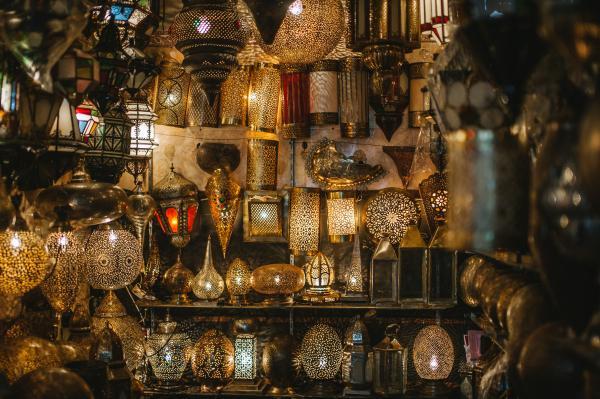
- EIB and JAÏDA sign a finance contract of €10 million (more than MAD 108 million) to support income-generating activities in Morocco
- This funding strengthens JAÏDA’s capacity to lend to microfinance institutions, with a focus on micro- and small enterprises
The European Investment Bank (EIB) and JAÏDA, a lender to microfinance institutions, have announced the signing of a loan agreement worth €10 million (over MAD 108 million) to support income-generating activities in Morocco. This agreement strengthens JAÏDA’s ability to lend to the country’s microfinance institutions, while underpinning its work in the areas of financial inclusion and social development. This funding will be used exclusively to finance microloans of less than €25 000 (approximately MAD 270 000) to promote income-generating activities and help maintain jobs at micro- and small enterprises with fewer than 10 employees in urban and rural areas, as well as to assist self-employed workers, individual entrepreneurs and micro-entrepreneurs.
Through this support for JAÏDA, the second-largest lender and a key player in Morocco’s microfinance sector, the EIB is pursuing its objective of promoting sustainable and responsible financial services that benefit income-generating activities, particularly for rural and poor populations, women and young people. With this financing, JAÏDA’s loan portfolio is expected to remain at between MAD 800 million and MAD 900 million (between €74 million and €84 million) per year.
This new operation follows on from the EIB’s endeavours in recent years to foster microfinance in Morocco and forms part of the Bank’s overall response aimed at supporting the Moroccan economy, particularly micro-entrepreneurs, in the COVID-19 crisis.
This new financing comes under the Risk Capital Facility for the Southern Neighbourhood set up by the European Union and the EIB to bolster private sector development, inclusive growth and job creation. It also contributes to the United Nations Sustainable Development Goals (SDGs) to eradicate poverty (goal 1), achieve gender equality (goal 5) and promote inclusive and sustainable economic growth, employment and decent work for all (goal 8).
Claudia Wiedey, EU Ambassador to Morocco, said: “The European Union actively supports the national strategy for financial inclusion and entrepreneurship in Morocco, particularly for very small, small and medium-sized enterprises. It is even more important today, amid the current pandemic, that we help as many people as possible achieve financial autonomy: the microfinance sector offers access to funds in a way that contributes significantly to the economic and social inclusion of the most vulnerable, while also boosting self-employment.”
“This is a major transaction in favour of JAÏDA, which has been the leading catalyst for growth in Morocco’s microfinance sector in recent years. With this funding, it will continue to play a key role in the future,” said Anna Barone, the EIB’s representative in Morocco. She added: “We are very pleased to be able to support micro-entrepreneurs across the country. Financing and supporting project promoters is a priority for the EIB. By doing so, we support employment while strengthening social bonds and integration. And we help to build a better future for younger generations.”
“Microfinance is an essential driver of Morocco’s socioeconomic development, as one of its key roles is to help facilitate access to financial services for income-generating activities not served by the traditional financial sector. This partnership with the EIB will consolidate JAÏDA’s role as a financier, major expert and unifying force in the sector while helping microfinance institutions with their strategies for financial inclusion,” said Meriam Mechahouri, chief executive of JAÏDA.
JAÏDA is a licensed lender to microfinance institutions in Morocco that was created by its founding shareholders: CDG (state-owned financial institution in Morocco), KfW (German development bank), Caisse des Dépôts (CDC) and Agence Française de Développement (AFD), which were joined in 2010 by Barid Al Maghrib. Its mission is to aid the development of microfinance institutions by providing funding and supporting them in rolling out development programmes based on microloans tailor-made to the needs of their clients.
Since its creation in 2007, JAÏDA has invested nearly MAD 3.3 billion (€300 million) in Morocco’s microfinance sector. JAÏDA is one of the leading lenders to the sector in Morocco with a market share of almost 19%, or total outstanding loans of MAD 922 million (€84 million) at the end of September 2020.